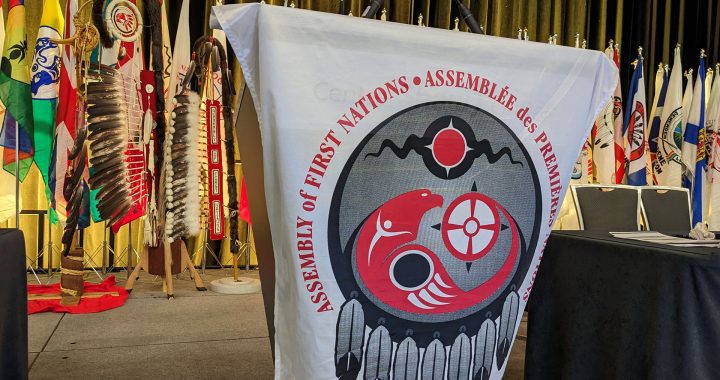Despite a federal ban on harvesting baby eels, fishers from Peskotomuhkatik travelled north of the border to exercise their treaty rights.
Adam Newell from Peskotomuhkati Tribe, Sipayik, located in the state of Maine, said the ban doesn’t concern him.
“We have to continue this fight because our people died for it,” he told APTN News. “Our people, our ancestors fought and died for this for us here today and we’re going to honour them, we are going to honour their deaths, we’re going to honour that by continuing to fish in a very management way, in a very conservation way.”
On April 15, the Department of Fisheries and Oceans banned harvesting what are baby eels, also called elvers, for 45 days because of violence and poaching.
“Back you know three four hundred years ago when the treaties were created, there was never a border for our people we passed freely,” said Newell.
Newell and the other fishers are exercising their treaty right to hunt and fish as outlined in the Peace and Friendship Treaties of the 17th century.
“We use our treaties all over wherever we can,” said fisher Erik Francis. “Our ancestral lands and that’s a big thing is allowing us to have the access for our children and grandchildren and so on.”
The Peskotomuhkati traditional territory includes southern New Brunswick and the State of Maine.
It also occupied the coastal regions – including the Bay of Fundy.
“To us there’s our ancestral lands there’s our ancestral waters and for the Passamaquoddy, the Peskotomuhkati it goes into Nova Scotia where our Mi’kmaw relatives were always relatives are so we would gather together we would hunt together we would fish together,” said Newell.
For Peter Clement and his brothers, fishing is a family affair.
“We are all fishermen, we have been fishermen for most our lives, I can remember back fishing black salmon in Quebec with my father exercising these same rights that we have and always had,” said Clement.
Elvers can be worth up to $5,000 a kilogram.
The lucrative commercial fishery was shut down until the end of May because of alleged poaching.
Clement said conservation comes first.
“We are also conscious about mother nature and how to preserve and how to take just what we need and not be in excess and abuse what mother nature has given us,” said Clement.
Newell said the elvers are part of the moderate livelihood fishery.
“We can’t stay the same as we did three or four hundred years ago so as evolution changes we changed now that we’re in a different type of time we’re not, we’re harvesting elvers not in a commercial sense but in a moderate livelihood sense,” he said.
But some say elvers are not a traditional fishery.
“You can look on a bigger picture, you know we harvest veal, there’s all kinds of different things we harvest eggs, those are underdeveloped babies,” said Francis.
The fishers say fisheries officers have stopped by, but no arrests were made.









